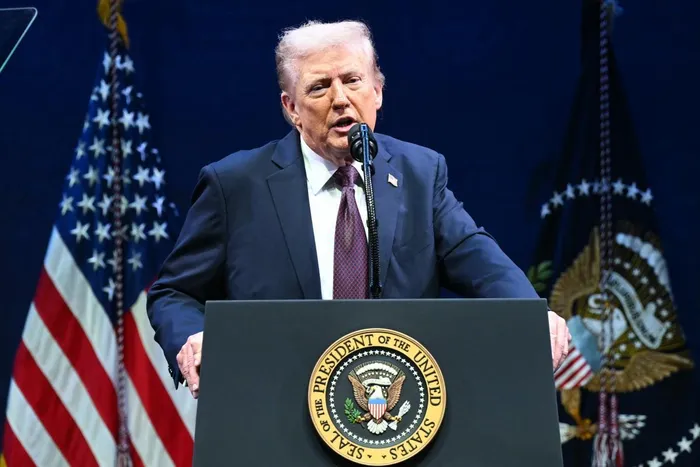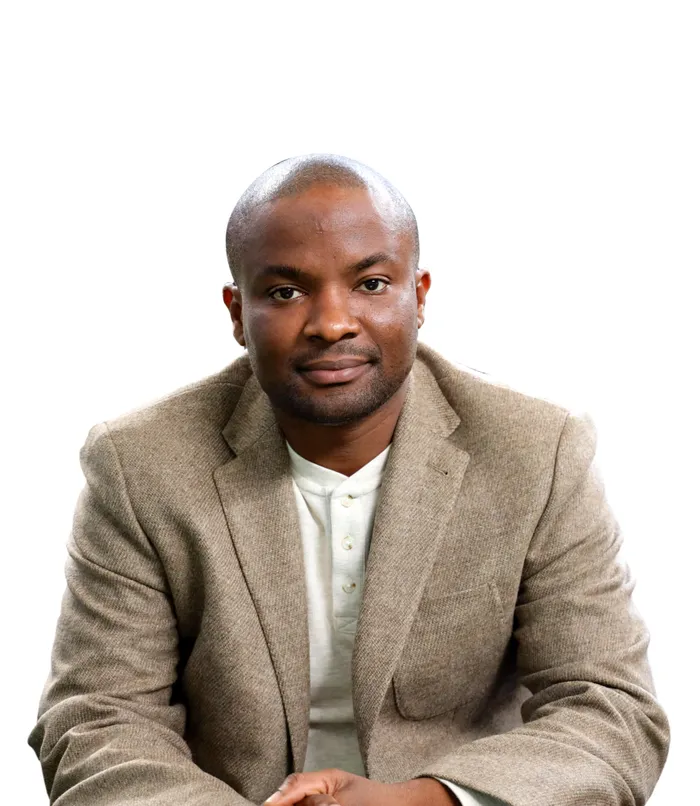
US President Donald Trump.
Image: AFP
In May 2013, African leaders signed a 50th anniversary solemn declaration during the Golden Jubilee celebration of the formation of the Organisation of African Union (OAU), now called the African Union.
The declaration marked the re-dedication of Africa towards the attainment of the Pan African Vision of ‘an integrated, prosperous and peaceful Africa, driven by its own citizens, representing a dynamic force in the international arena”. It also launched Agenda 2063, which is the concrete manifestation of how the continent intends to achieve this vision within a 50-year period from 2013 to 2063.
The continent is richly endowed with many potentials and resources, with 500 million of its youth aged 18-35 being the youngest globally. The continent’s youth population is projected to grow by over 1billion people by 2050, making it nearly half of the world’s youth. This demographic trajectory has profound implications. It offers Africa a potential demographic dividend, where a large working-age population can drive growth, innovation, and industrialisation if adequately educated and employed. At the same time, it places immense pressure on education systems, job creation, and infrastructure, with risks of unemployment, social unrest, or exclusion if opportunities are not expanded.
When it comes to natural resources, the continent ranks first in quantity of the world’s reserves of bauxites, cobalt, industrial diamonds, phosphate rock and platinum, to name a few. According to the United Nations Environmental Programme (UNEP), in most African countries, natural capital accounts for between 30 percent and 50 percent of total wealth. Despite all these, the continent has the highest rate of extreme poverty globally, marked by low life expectancy, high child mortality and widespread malnutrition. A significant share of these resources is, however, used unsustainably, while others are lost through illegal activities, meaning that the stream of benefits generated from these resources are being reduced over time. For instance, Africa loses an estimated $195 billion annually of its natural capital through illicit financial flows, illegal mining, illegal logging, the illegal trade in wildlife, unregulated fishing and environmental degradation and loss.
The lack thereof of Africa not fulfilling its full potential stems from a leadership crisis that the continent has faced over the years, as the continent exports its raw materials and then imports the finished products thereby losing valuable assets and capital that would have been utilised to develop much needed infrastructure for the benefit of citizens.
Most young people have no access to education and the ones that have graduated cannot put their skills to any use because the continent has auctioned out its manufacturing capacity and capability to the ‘highest bidder’.
At a themed private dinner this past weekend, the host quizzed, “What Makes Africa Unstoppable? Most of the participants echoed the sentiments I shared above on the continent’s potential and challenges. The continent faces a huge risk with its burgeoning youth population which could trigger a continental uprising if inequality, poverty, and unemployment challenges are not addressed. Hence, ‘Africa’s Unstoppability’ could be an opportunity or a huge risk to the continent.
In his 2024 Presidential campaign, US President Donald Trump pledged record tariffs on several countries, including 60% on Chinese goods and 100% tariffs for cars made in Mexico, to name a few. South Africa has had its fair share imposed too. Many criticised his approach on lacking basic trade guidelines and going against the World Trade Organisation (WTO) principles. However, the Trump administration argues that its tariffs will promote domestic manufacturing, protect national security and substitute for income taxes.
While one can debate Trump’s approach to America’s tariffs, including the specific measures implemented and the way they were communicated to its allies and partners, the reality is that his policies have potential to create huge opportunities for new industries within the United States. They have encouraged existing manufacturers to expand operations, while also incentivising the emergence of new enterprises. Although it may take time to see its full impact, these measures reflect a focus on advancing the country’s national interest.
It is crucial that Africa follow the same approach. We need leaders that would be bold enough to create an enabling environment to capacitate its local industries and encourage scale and new entrants to come in and build for the betterment of their countries and the continent.
As one of the guests asked during this past weekend’s themed dinner, “Would it have mattered to Africa that I lived”? That’s the question each one of us need to reflect on. What legacy do we leave behind for the next generation?
In closing, we need strategic “Trump” like negotiators to drive trade in Africa. We need leaders that will sweat our assets, monetise our resources, build new industries, advance support for small businesses, drive innovation and future skills for jobs. As world leaders gather next week for the United Nations General Assembly (UNGA), the words of the UN Secretary General Antonio Guterres ring dear, “Leaders must get serious and deliver for their people”.

Kizito Okechukwu Kizito Okechukwu is the Head of Secretariat for the Startup20 (SU20) of the G20 and the Executive Head at 22 On Sloane, Africa’s largest startup campus.
Image: Supplied.
Kizito Okechukwu is the Executive Head of 22 On Sloane, Africa’s largest startup campus and Head of Secretariat of SU20, an engagement group of the G20.
*** The views expressed here do not necessarily represent those of Independent Media or IOL.
BUSINESS REPORT